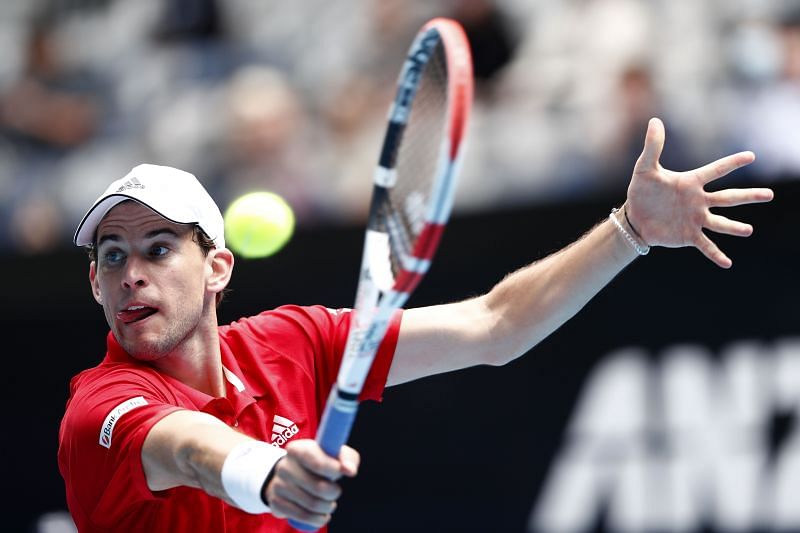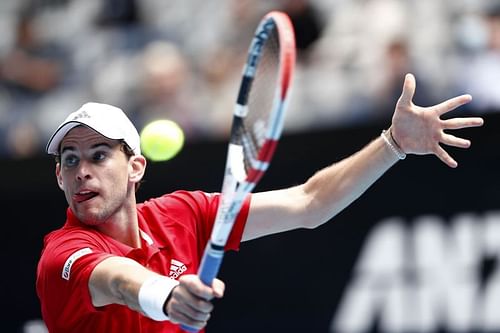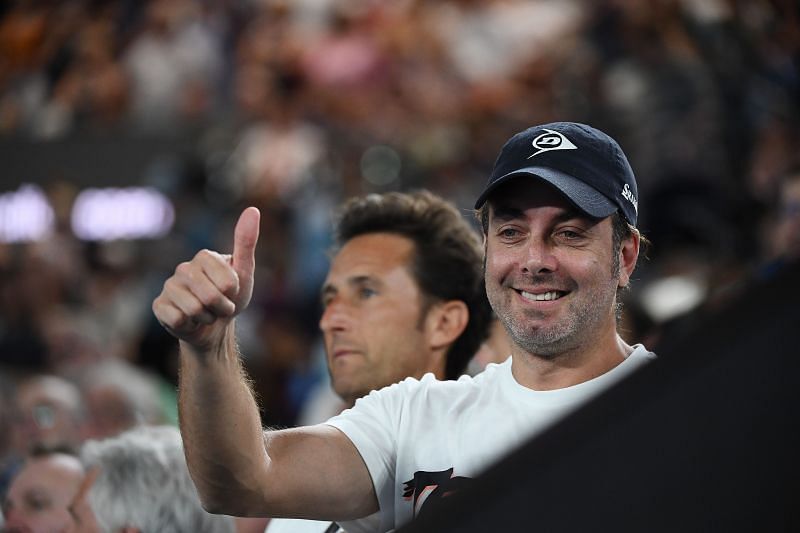
Dominic Thiem denies that he is in depression, says he is "back to playing really well in practice"

Dominic Thiem recently spoke at length about his mental and physical state, refuting claims that he has been suffering from depression. Thiem also gave an update about his knee injury and his practice sessions, while coach Nicolas Massu expressed positivity about the Austrian's prospects during the clay season.
Dominic Thiem had admitted a couple of weeks ago about how he had struggled mentally after his US Open win. In the aftermath of his revelation, a few media outlets misread a Mats Wilander quote that seemed to suggest Thiem was suffering from depression.
Thiem was probed on the matter during a recent interview with ORF Sport, but the 27-year-old clearly stated that he has not been suffering from depression. The 27-year-old did reiterate that he went through a lull after winning the US Open, which claimed was 'normal'.
Dominic Thiem also mentioned how winning his maiden Slam completely drained him of his last remaining 'energy reserves', from which he needed time to recover.
"I can only say that there is no depression at play," Dominic Thiem said. "But of course, as a tennis player, or as an athlete, or even as a normal person, you often reach your limits. And when you exceed them a little bit, or when you celebrate such a great success that you've been working towards for so long, of course it does something to you. So it's just obvious that your life is different than it was before."
"And I probably nibbled away at energy reserves that I didn't even know I had," he added. "Of course both the body and the head need time to recover from that. It's normal that there might be a small hole after such a high."
Dominic Thiem went on to provide an update on his knee injury, asserting that it was on the mend. The Austrian also expressed hope that he would be 'pain-free' ahead of the Madrid Masters.
"During matches, there's even more adrenaline involved and even if they last 2.5 to 3 hours, it should be completely okay now," Thiem said. "And in general it's getting better day by day. So hopefully it will be pain free by Madrid, Rome and of course Paris."
According to Dominic Thiem, the first few days after he returned to practice were difficult, and his groundstrokes didn't have their usual timing. But the Austrian also asserted that his body started responding to the rigors of training very quickly.
"I was actually positively surprised how quickly it all worked, as I did very little for three weeks," Dominic Thiem said. "Of course, I felt it the first few days. It was really hard. My whole body hurt, the strokes didn't work. But after a few intensive long training days, it came back really quickly."
Thiem then claimed that his movement and general level are back to where he wants them to be, and that he is "really motivated" again.
"I'm back to playing really well in practice, I'm moving well," the 27-year-old said. "Physically, of course, I had lost a bit of strength because I didn't do anything for a while, but as soon as I was really motivated again, it came back really fast."
Since I arrived here almost 2 weeks ago, I've seen the normal Dominic Thiem: Nicolas Massu

Dominic Thiem did not have Nicolas Massu by his side during the first few months of this year. Massu had tested positive for COVID-19 ahead of the Australian hardcourt swing, forcing the Chilean to remain confined in his country.
However, Nicolas Massu rejoined Dominic Thiem in Austria a couple of weeks ago. He has now claimed that Thiem has been training 'unbelievably', and that the Austrian looks motivated to do well in Madrid.
"Since I arrived here almost 2 weeks ago, I've seen the normal Dominic," Massu said. "He trains unbelievably. He is looking forward to the tournament in Madrid. My impression is good, when he is in that kind of mood he can do big things."
Nicolas Massu stressed that as a coach, you need to be close to your ward when results take a turn for the worse, the way they have in Dominic Thiem's case.
"It's so easy to be close to your protege when everything is going well," Massu added. "But when things feel different, when results aren't good this is the moment when you need to be close to your player."